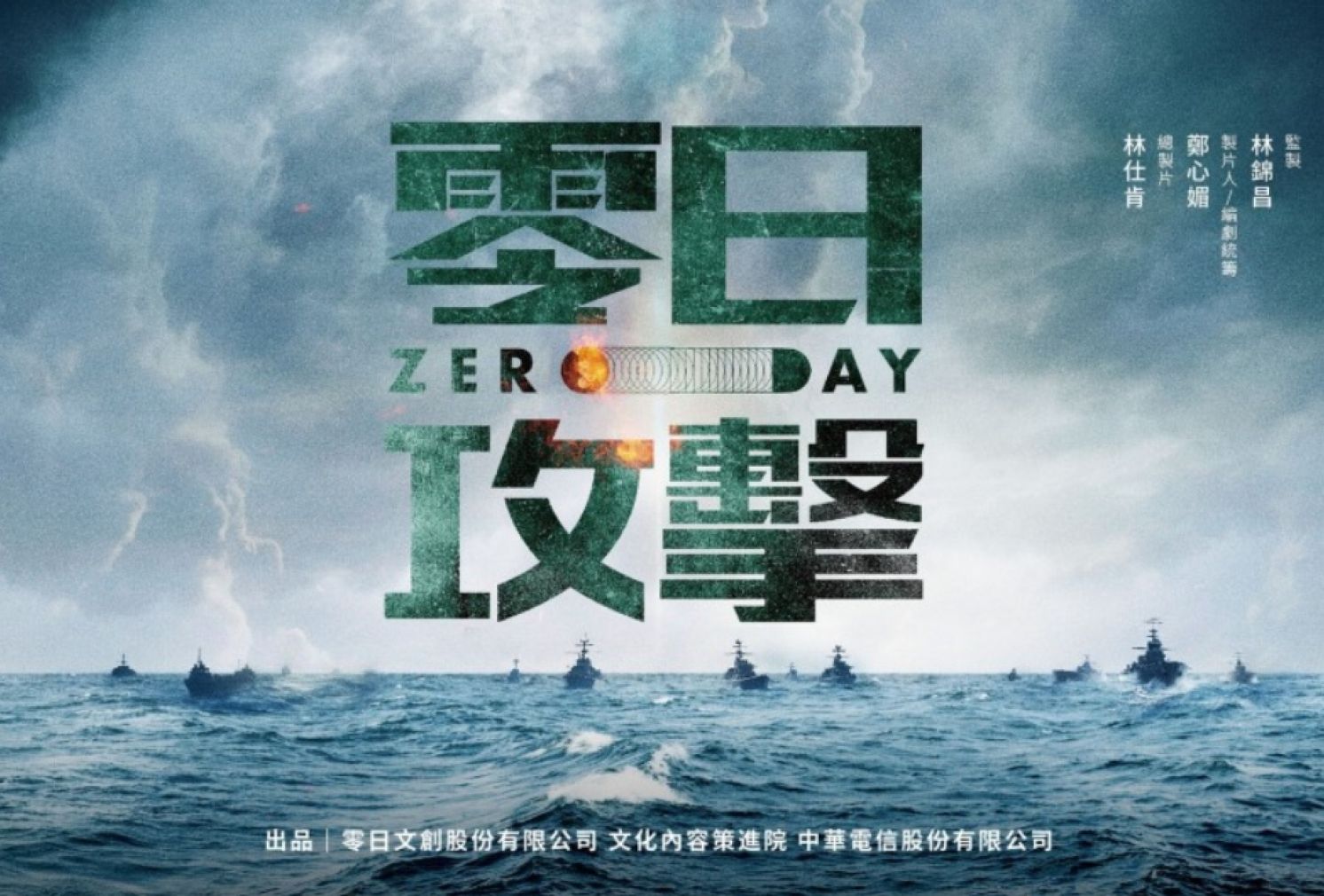
Column: Fascist Aesthetics of Zero Day Attack—War-Glorifying Anti-China Drama
The Storm Media, August 10, 2024
In the final scene of the trailer for the Taiwanese television drama Zero Day Attack, a young man, fleeing with his family, on the way suddenly decides to enlist in the Armed Forces. He resolutely jumps into a military truck, leaving his family behind full of astonishment. This scene is undoubtedly meant to arouse the passions of young viewers, encouraging them to head to the battlefield. The underlying message seems to be: "This is what it means to be a brave Taiwanese! Fearlessness is a true Taiwanese value!"
This anti-China drama cost NT$250 million (about US$7.7 million), which was completed with subsidies of NT$71.3 million (about US$2.2 million) from the Ministry of Culture and NT$41.7 million (about US$1.3 million) from the National Development Fund, Executive Yuan. It essentially uses Taiwanese taxpayers' money to brainwash the general public, providing the administration of President Lai Ching-te with free propaganda—as Zero Day Attack, while also justifying further arms procurement from the United States. Actually, this drama is not just a "green military propaganda film"; it is a recruitment video for the pro-independence defense force.
"War is a necessity for the soundness of the human spirit." In the early 20th century, Italian poet Filippo Tommaso Marinetti praised war in his Manifesto of Futurism: "We intend to glorify the love of danger, the custom of energy, and the strength of daring... We will glorify war—the only true hygiene of the world—militarism, patriotism, the destructive gesture of anarchist, the beautiful ideas worth dying for." This straightforward praise of war in the manifesto influenced fascist ideology.
Zero Day Attack deliberately glorifies the act and legitimacy of participating in a war. In the plot, Communist China uses the pretext of the search and rescue operations for a Y-8 anti-submarine aircraft crashed in the southeastern waters of Taiwan to impose a naval blockade, leading to the complete disruption of Taiwan's external shipping routes, triggering a stock market crash and bank runs. In response to potential military actions by the People's Liberation Army (PLA), the Taiwanese army initiates a full-scale mobilization, and foreign governments begin evacuating their nationals from Taiwan. This creates a suffocating atmosphere in the seven days leading up to the war.
This drama is reminiscent of the militarism of wartime Japan. During World War II, the Japanese government had propagated ideology from the top down, distorting the symbolic meaning of cherry blossoms, promoting the emperor system, and recruiting kamikaze pilots, making the populace internalize these propaganda codes. The father of the kamikaze, Ōnishi Takijirō, indoctrinated 4,000 Japanese youths in the idea that "if Japan loses, your wives will be raped!"—thus creating the volunteer "kamikaze squad."
In the past, China’s anti-American movie The Battle at Lake Changjin and anti-Japanese movie The Eight Hundred achieved box office success under the national system. Hu Ping, former editor-in-chief of Beijing Spring, criticized that it doesn't matter how absurd the war drama script is, as long as it's politically correct. According to Hu, now the absurd plot of Zero Day Attack is on show in Taiwan, absurdly simulating international political situation and future military actions. It can be rated as the "anti-China divine drama" of contemporary era.
In the drama, the new president's speech includes the line: "War or humiliation?" echoing the famous words of British Prime Minister Winston Churchill during World War II: "You were given the choice between war and dishonor. You chose dishonor. You will have war." But before war arrives, it is possible to avoid it rather than provoke it. Yet, this drama justifies the legitimacy of "declaring war," hyping up the sense of the nation's impending doom (original text: selling "dried mango"--a Taiwanese slang for fearmongering).
In Zero Day Attack, the president unexpectedly says: "Because we do not have a country." What does this meta-statement signify? Surely, it reflects national imagination and national identity, a call to inspire "brave Taiwanese" and recruit a "pro-independence defense force" filled with resilience. This is a manipulation of national identity and fascist aesthetics by politicians.
Zero Day Attack is indeed instilling the sanctity and nobility of war, serving American interests. The Washington Post quoted scenes from the drama centered on a potential war across the Taiwan Strait, highlighting the pessimistic assessment of Taiwan's war preparation status, a reflection of the challenges Taiwan has faced due to the CCP's threats. The article also pointed out that Taiwanese youths show little interest in joining the army, exposing the dual dilemmas of manpower and equipment shortages in national defense training. Former U.S. Deputy National Security Advisor Matthew Pottinger even remarked that ’Taiwan needs to have its top-notch officers to be involved in recruitment and training. With Uncle Sam offering guidance, coupled with the "highly immersive" viewing experience, Lai has a potent tool for "cleansing minds."
Former Legislator Kuo Cheng-liang, well-versed in the thinking and actions of the Democratic Progressive Party (DPP), made keen observation that, "Lai is Taiwan's Hitler, leading the DPP towards fascism." Zero Day Attack, with its backdrop of the war across the Taiwan Strait, aesthetically glorifies war, hyping up war through an immersive experience, realizing a self-fulfilling doomsday fable, making it a "war-glorifying anti-China divine drama." As noted in Cinema and the Cultural Cold War, "The best political propaganda film must also be an entertaining film!" This divine drama is undoubtedly the best interpretation.